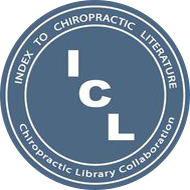Objective: We explored if any predictors of success could be identified from end-of-year grades in a chiropractic master's program and whether these grades could predict final-year grade performance and year-on-year performance.
Methods: End-of-year average grades and module grades for a single cohort of students covering all academic results for years 1–4 of the 2013 graduating class were used for this analysis. Analysis consisted of within-year correlations of module grades with end-of-year average grades, linear regression models for continuous data, and logistic regression models for predicting final degree classifications.
Results: In year 1, 140 students were enrolled; 85.7% of students completed the program 4 years later. End-of-year average grades for years 1–3 were correlated (Pearson r values ranging from .75 to .87), but the end-of-year grades for years 1–3 were poorly correlated with clinic internship performance. In linear regression, several modules were predictive of end-of-year average grades for each year. For year 1, logistic regression showed that the modules Physiology and Pharmacology and Investigative Imaging were predictive of year 1 performance (odds ratio [OR] = 1.15 and 0.9, respectively). In year 3, the modules Anatomy and Histopathology 3 and Problem Solving were predictors of the difference between a pass/merit or distinction final degree classification (OR = 1.06 and 1.12, respectively).
Conclusion: Early academic performance is weakly correlated with final-year clinic internship performance. The modules of Anatomy and Histopathology year 3 and Problem Solving year 3 emerged more consistently than other modules as being associated with final-year classifications.
This abstract is reproduced with the permission of the publisher. Click on the above link for free full text.
|
